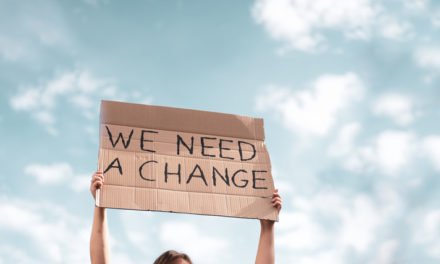Editor’s Note: This post was written by Joseph R. Winters, Ph.D., Assistant Professor in Religious Studies and Affiliate Professor in Africana Studies at University of North Carolina-Charlotte. He holds a Bachelor’s degree in Economics from Harvard University, Masters in Theological Studies from Duke University and a Ph.D. in Religion, Ethics, and Politics from Princeton University. Dr. Winters is currently working on a book titled Hope Draped in Black which looks at the relationship between hope and memory in authors like WEB DuBois, Ralph Ellison, and Toni Morrison.
 Most people would not object to the claim that conditions for black Americans have improved in the past four decades. Even for those who don’t completely buy into the notion of a post-racial America, these same people are convinced that there are presently more opportunities and possibilities for black people than ever before. Racial progress, according to this view, is undeniable. Barack Obama, an African-American, currently holds the Presidential office. Martin Luther King Jr. was recently honored with a memorial in Washington, DC. Black culture, especially hip hop music, increasingly has an influence on the broader society (even Karl Rove raps). For many people, racial inequality is increasingly becoming a problem of the past, an obstacle that we have almost overcome.
Most people would not object to the claim that conditions for black Americans have improved in the past four decades. Even for those who don’t completely buy into the notion of a post-racial America, these same people are convinced that there are presently more opportunities and possibilities for black people than ever before. Racial progress, according to this view, is undeniable. Barack Obama, an African-American, currently holds the Presidential office. Martin Luther King Jr. was recently honored with a memorial in Washington, DC. Black culture, especially hip hop music, increasingly has an influence on the broader society (even Karl Rove raps). For many people, racial inequality is increasingly becoming a problem of the past, an obstacle that we have almost overcome.
This optimism is usually curbed by sobering facts and realities – racial disparities in education and health care, the disproportionate amount of blacks and Latinos in prisons (blacks are imprisoned at least eight times as often as white Americans, while Hispanics are imprisoned at two to three times the rate of whites), a housing crisis that has especially devastated black and Latino communities, and so forth. Many of our nation’s cities and communities are just as segregated as they were forty years ago. In the classic 1903 text, Souls of Black Folk, WEB DuBois claimed that one could draw a physical color line through many cities (blacks lived on one side and whites on the other). Although racial dynamics have changed in this country, I have heard several of my students say that this literal color line still exists in cities like Memphis and Greensboro. So what are the implications of all this? Has America progressed when it comes to racial inequality or not? Are conditions for blacks in America better in 2012 than they were in 1962 or 1982? During black history month, should we be focusing on how far blacks have come or should we be drawing attention to ongoing problems and obstacles?
I certainly don’t have definitive answers to these questions. Yet I contend that any serious engagement with the significance of race in this country must cast a suspicious eye on the very notion of progress. This does not mean that change for the better does not occur in our society. Nor does this mean that we should reject or jettison the possibility of social progress. Yet it does mean that we have to be mindful and critical of the ways in which the language of “progress” is used in everyday discourses and conversations. Often, this idea is used to deny ongoing racial disparities, disparities that are informed by economic and class inequalities. It is also used to prevent people from acknowledging how the past haunts and shapes the present (those of us who shudder at the sight of a Confederate flag understand this). Similarly, the idea of racial progress neglects the fact that Latinos and Arab Muslims are increasingly the objects of racial fears and anxieties. When members of the political right confess that they don’t trust Obama because of his supposed affiliation with Islam, we see an example of a new form of racism, racism that is mediated and inflected by anti-Muslim sentiments.
 Perhaps I sound too pessimistic. Perhaps I am not looking at the brighter side of things. What about hope? What about possibility? Like DuBois, I remain “unhopeful but not hopeless.” This simply means that my hope for a more racially just society is constrained by an awareness of realities and conditions that continue to prevent black people and other members of our society from flourishing.
Perhaps I sound too pessimistic. Perhaps I am not looking at the brighter side of things. What about hope? What about possibility? Like DuBois, I remain “unhopeful but not hopeless.” This simply means that my hope for a more racially just society is constrained by an awareness of realities and conditions that continue to prevent black people and other members of our society from flourishing.


















